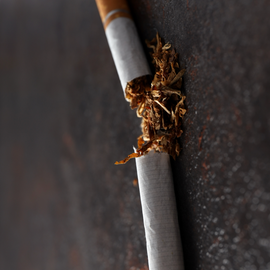Update on NSW COVID-19 Restrictions and Public Health Orders
- Nick Noonan and Lisa Berton
- Jan 20, 2022
- 5 min read

The NSW Government has made a number of amendments to the current suite of Public Health Orders in response to the Omicron variant of COVID-19, with the most recent changes taking effect from 12 January 2022.
What restrictions are included in the General Public Health Order?
In summary, the Public Health (COVID-19 General) Order (No 2) 2021 (NSW) (General Public Health Order) sets out the following restrictions:
Masks: Masks are required to be worn in indoor areas, including the common property of residential premises, on planes and public transport including taxis and rideshare services, at airports and by hospitality staff dealing directly with members of the public.
COVID-19 Safe Check-Ins: COVID-19 Safe Check-Ins are required for certain venues, including but not limited to retail premises, food and drink premises, pubs, registered clubs, small bars and nightclubs, hospitals, gyms (not including a dance, yoga, pilates, gymnastics or martial arts studio), places of public worship, funerals or memorial services, beauty services (including hairdressers, spas, nail salons and massage parlours), residential care facilities and indoor music festivals with more than 1,000 people.
Density limits: Hospitality venues and nightclubs are required to comply with the one person per two square metre rule in relation to indoor areas on the premises.
No singing or dancing: There is no singing or dancing allowed at certain premises, including hospitality venues, entertainment facilities, nightclubs and major recreation facilities, including sports stadiums. There are exceptions for performers and weddings and receptions.
Music festivals: Unvaccinated persons cannot attend indoor music festivals with more than 1,000 people. There is no singing or dancing allowed at music festivals (other than the performers) and the maximum amount of people allowed at a festival is 20,000.
Working from home: Although the General Public Health Order does not require people to work from home, the NSW Premier has encouraged people to work from home if possible, particularly during the holiday period.
The NSW Government has indicated that these restrictions will be in place until at least 27 January 2022, at which time they are expected to be re-assessed.
What are the current self-reporting and self-isolation requirements?
The Public Health Order which sets out self-isolation requirements has also been amended as of 12 January 2022. The amendments to the Public Health (COVID-19 Self-Isolation) Order (No 4) 2021 (Isolation Public Health Order) include changes to the reporting of positive COVID-19 cases and self-isolation requitements, including the following:
Registering positive rapid antigen tests (RATs): A person who tests positive for COVID-19 on a RAT must register the result via Service NSW. A person who fails to register a positive RAT result may be fined $1,000.
Notification of positive result: A positive case must inform the people they interacted with in the 2 days before their symptoms developed or before they tested positive (whichever came first) that they have contracted COVID-19. This includes notification of social contacts, the workplace and/or school.
Self-isolation: The self-isolation period for persons who test positive to COVID-19 has been reduced. A person who tests positive either with a PCR test or RAT must isolate for at least 7 days, along with members of the household. If the person has symptoms after 7 days, they must remain in isolation until 24 hours after the symptoms have resolved. See NSW Health Fact Sheet: Testing positive to COVID-19 and managing COVID-19 safely at home.
Household and close contacts: The self-isolation requirement for household contacts has also been reduced. Household contacts are now only required to self-isolate for 7 days from the last time the person was in contact with the COVID-positive person and comply with the above self-isolation requirements. Changes have also been made to the definition of “close contacts” with “close contacts” now defined nationally as someone who has spent four hours or more with a confirmed case in a household or household-like setting. Close contacts are also required to self-isolate for 7 days if directed to do so by a contact tracer and are generally recommended to do so. See NSW Health Fact Sheet: Information for people exposed to COVID-19.
Recent COVID-19 case exemption: A person who has previously tested positive for COVID-19 is not required to isolate if they come into contact with a positive case 28 days after they completed their self-isolation, unless the person exhibits symptoms. If a person has completed their self-isolation before other positive cases in their household, they are not required to self-isolate or test unless they develop new COVID-19 symptoms.
Critical Worker Exemption
An exemption has also been granted under clause 15 of the Isolation Public Health Order for critical workers with respect to self-isolation requirements:
Critical worker exemption: The critical worker exemption applies to workers classified as critical workers in certain industries, including:
agriculture;
manufacturing;
transport, postal and warehousing;
sea operations, air and sea freight and logistics;
emergency services workers and healthcare workers (as well as workers and volunteers working with community organisations such as surf lifesaving, volunteer rescue);
utilities (which includes electricity services, gas services, water supply etc.);
information and telecommunications;
social assistance and welfare services;
funeral, cemetery and crematorium services;
operation of correctional centres and community corrections.
These workers are exempt from the requirement for household and other close contacts to self-isolate for a period of 7 days from when they last had contact with the COVID-19 positive person. This is subject to a number of conditions including the following:
The worker’s employer determines that their absence from the workplace poses a high risk of disruption to the delivery of critical services or activities and the worker is unable to work from home.
The worker undergoes daily RATs for a period of 7 days from when they last had contact with the COVID-19 positive person, and must notify the employer of each RAT result.
Notwithstanding a negative RAT result, if a critical worker develops any symptoms of COVID-19, they must immediately self-isolate and may only return to work with evidence of a negative PCR test taken after the onset of symptoms.
See NSW Government: Critical worker self-isolation exemption guidance.
Victoria has also introduced similar exemptions for close contacts who work in specified industries.
There have also been calls from employer groups on a national level for National Cabinet to agree to more practical and consistent rules and requirements around COVID-19 testing, isolation and returning to work in the interests of addressing staff shortages and supply issues.
Notification to SafeWork NSW
The Isolation Public Health Order also imposes an obligation on employers to notify SafeWork NSW if they become aware that a worker has tested positive for COVID-19, if the worker contracted, or is likely to have contracted, COVID-19 at the person’s workplace or attended the workplace while infected with COVID-19.
Mandatory Booster Vaccinations
There are a number of industries which are subject to vaccine mandates, which the NSW Government introduced in 2021 in response to the Delta COVID-19 outbreak. These vaccine mandates apply to health care workers, education and care workers and aged care workers, which are each covered by separate Public Health Orders.
The NSW Premier announced on 7 January 2022 that those workers subject to mandatory vaccination orders will be required to receive a booster shot to be considered fully vaccinated. However, these changes are yet to be reflected in the Public Health Orders.
Similar announcements have been made by Victoria and Western Australia with respect to mandating booster shots.
Please contact our Employment Team at Henry William Lawyers if you require any assistance regarding Public Health Orders, or requirements and rules for workers in relation to COVID-19, including any assistance or advice with respect to other States and Territories.






























Comments